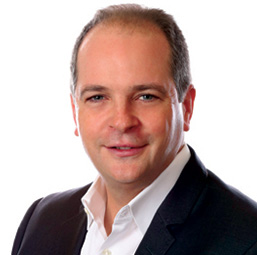ResMed makes dent in $300M goal

By Liz Beaulieu, Editor
Updated 12:33 PM CDT, Fri October 29, 2021
 SAN DIEGO – ResMed posted a 40% increase in sales for CPAP devices in the U.S., Canada and Latin America in the first quarter of the company’s fiscal year 2022, driven in part by increased demand created by a competitor’s recall.
SAN DIEGO – ResMed posted a 40% increase in sales for CPAP devices in the U.S., Canada and Latin America in the first quarter of the company’s fiscal year 2022, driven in part by increased demand created by a competitor’s recall.
Company officials previously said they expect the recall to result in incremental revenue from device sales of $300 million to $350 million for fiscal year 2022 but meeting that goal will depend on their ability to address supply chain issues.
“We gave that $300 million to $350 million device rough guidance, right?” said Mick Farrell, CEO of ResMed during a conference call on Oct. 28 to discuss the company’s recent financial results. “It's not perfect, because we're predicting 12 months out in a very uncertain environment. But we're sticking with that, knowing that we actually had $80 million to $90 million during this quarter that comes out of that, and then we've got the remainder (of the year) to go fight for those components and be able to deliver that over the next nine months.”
Globally, ResMed posted a 31% increase in device sales for the first quarter compared to the same period in the previous year.
Company officials say, going forward, they expect to generate the bulk of that incremental revenue from device sales in the fourth quarter, as they expect the second and third quarters to be the most impacted by supply chain issues.
“We’re not modeling it out,” Farrell said. “But if I was looking at it, it would be tougher in December and tougher in March right now and then freeing up in the June quarter, and then the September quarter even more so as some of our new designs and new components get to roll in and we get that flow going.”
Farrell said ResMed is “doing everything we can” to increase production of CPAP devices and other medical devices, including working to free up the company’s access to components, particularly semiconductor chips. The company was able to increase its allocation from one manufacturer recently, but that was only the first step.
“During the quarter, I was on a Zoom call with one of our supplier’s, supplier’s, supplier’s, supplier’s, supplier’s, suppliers, and I'm not kidding,” he said. “We face the challenge, and are still facing it, of working with the five customers of theirs, all the way down that chain to get to us to ensure that the agreed upon increased allocation of that component actually gets to ResMed, gets manufactured into ResMed products and then sent to ResMed customers and, ultimately, to patients. That's just one example of a high degree of difficulty dive for our supply chain team.”
ResMed is also working to address air freight challenges by chartering consumer planes to fly from Singapore to L.A. and from Singapore to Atlanta to get its products to market.
“They're actually consumer planes, but with no consumers in them and, literally, just ResMed devices taking the seats and overhead,” Farrell said.
These measures are increasing ResMed’s costs, but Farrell declined to provide details on the subsequent impact on product pricing.
“One thing we are doing is, with AirSense 11, we are launching that with a price premium, and so we will be extracting that,” he said. “And look, we have been working with customers and eliminating certain discounts and rebates and other things that we had used in the past, because those don’t apply now. And so, we’re eliminating some of those costs.”
Comments